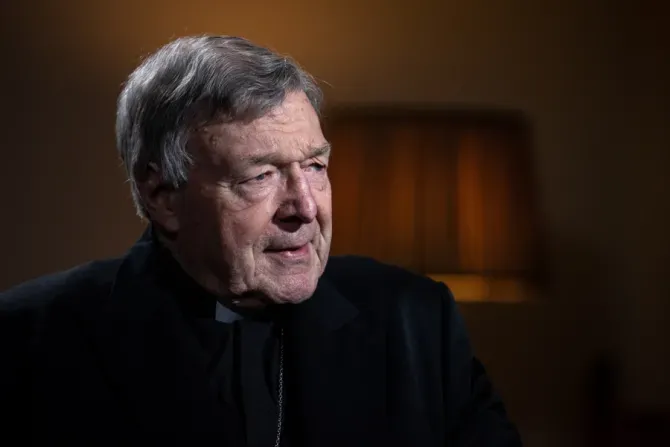George Pell was born on June 8, 1941, in Ballarat, a town in Victoria, to an English-born Anglican father and a devout Catholic mother of Irish descent.
Pell was ordained a priest for the diocese in 1966. He was made an auxiliary bishop of Melbourne in 1987, and nine years later he was named archbishop of Melbourne.
In 2001 he was appointed archbishop of Sydney, where he served until being appointed by Pope Francis to take charge of the newly created Secretariat for the Economy and to lead efforts at reforming Vatican financial affairs in 2014.
The Australian was made a cardinal by Pope John Paul II in October 2003, while he was archbishop of Sydney. Ten years later, Pope Francis appointed Pell a member of his Council of Cardinals, and the year after, he put him in charge of Vatican finances.
In 2017, Pell left Rome for Australia to defend his innocence of abuse charges. After 404 days in prison he was ultimately acquitted in 2020. He returned to live in Rome on Sept. 30, 2020, his first visit back to the city since his trial and imprisonment.
Cardinal Pell’s prison journal, written while he was in solitary confinement, is being published in three volumes. He has said he could not offer Mass in jail because he was not allowed access to wine for use in the consecration.
In 2021, Pell turned 80 years old, losing his eligibility to vote in a future papal conclave.
On May 13, 2021, Pell led a eucharistic procession at the Pontifical University of St. Thomas Aquinas, also known as the Angelicum, in Rome, where he explained that during his 13 months in jail, he was “unable to celebrate Mass and attend Mass.”
“I listened to many Protestant preachers, and I became even more aware of the centrality of the liturgical celebration. It’s a making present of Christ’s sacrifice. It’s an explicit act of adoration. It involves the whole of our persons. It needs faith to be practiced,” he said.
This is a developing story.








